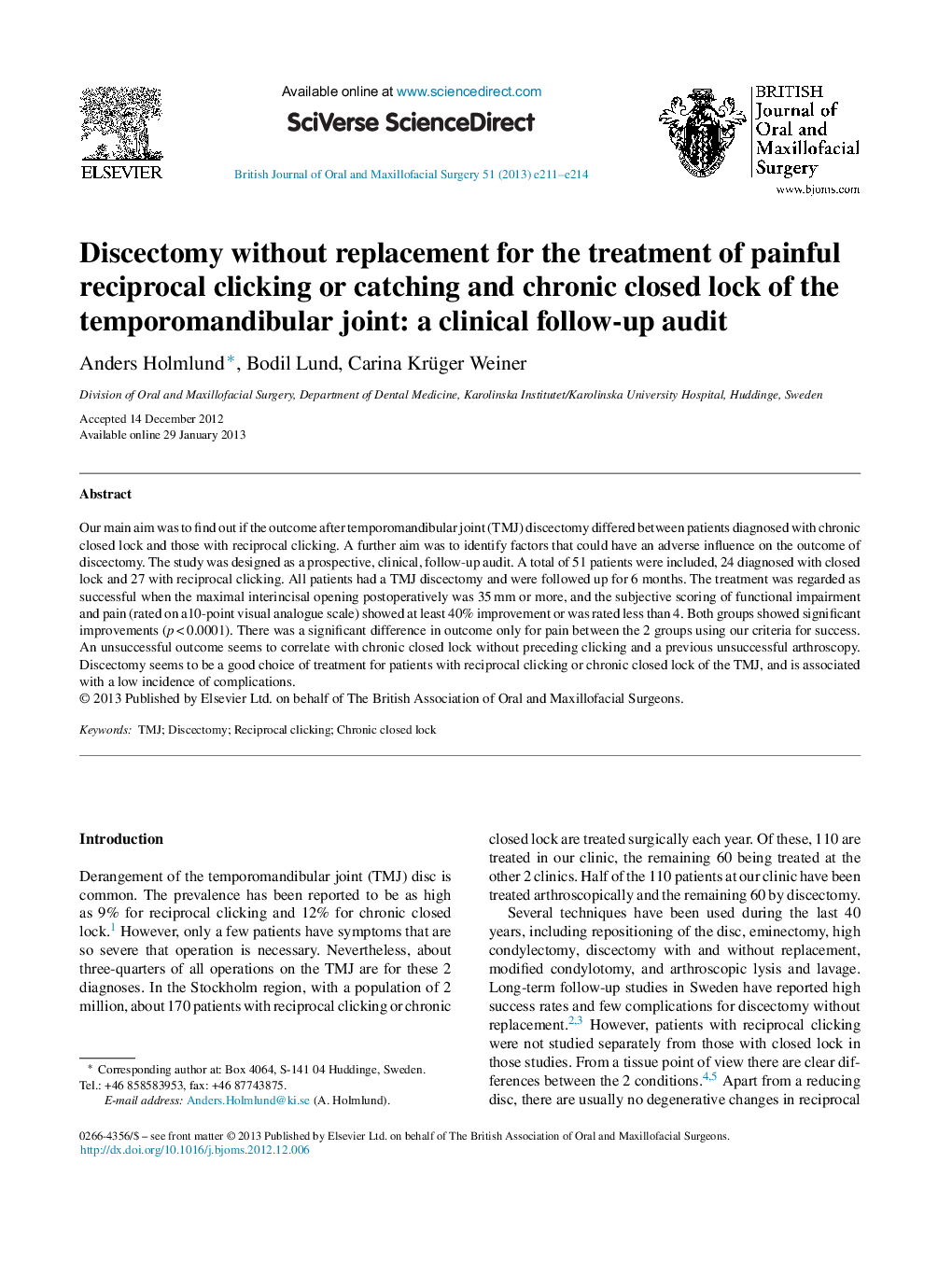| Article ID | Journal | Published Year | Pages | File Type |
|---|---|---|---|---|
| 3123732 | British Journal of Oral and Maxillofacial Surgery | 2013 | 4 Pages |
Our main aim was to find out if the outcome after temporomandibular joint (TMJ) discectomy differed between patients diagnosed with chronic closed lock and those with reciprocal clicking. A further aim was to identify factors that could have an adverse influence on the outcome of discectomy. The study was designed as a prospective, clinical, follow-up audit. A total of 51 patients were included, 24 diagnosed with closed lock and 27 with reciprocal clicking. All patients had a TMJ discectomy and were followed up for 6 months. The treatment was regarded as successful when the maximal interincisal opening postoperatively was 35 mm or more, and the subjective scoring of functional impairment and pain (rated on a10-point visual analogue scale) showed at least 40% improvement or was rated less than 4. Both groups showed significant improvements (p < 0.0001). There was a significant difference in outcome only for pain between the 2 groups using our criteria for success. An unsuccessful outcome seems to correlate with chronic closed lock without preceding clicking and a previous unsuccessful arthroscopy. Discectomy seems to be a good choice of treatment for patients with reciprocal clicking or chronic closed lock of the TMJ, and is associated with a low incidence of complications.
